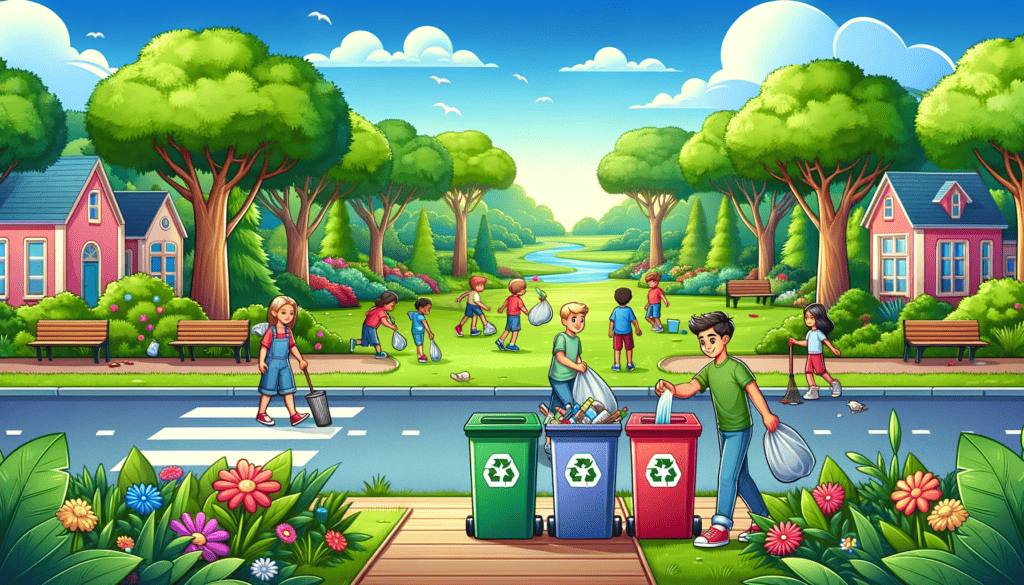
Understanding Littering and Its Impact
The Basics of Littering
Littering, at its core, is the improper disposal of waste products in public places. This practice, often done thoughtlessly, involves leaving behind items like plastic bottles, wrappers, and cigarette butts in areas not designated for waste disposal. The reasons behind littering can vary, ranging from a lack of awareness or disregard for the environment to the absence of nearby trash bins.
How Litter Affects Our Environment
The environmental impact of littering is significant. It harms wildlife, with animals often mistaking litter for food or becoming entangled in debris. Litter also disrupts natural habitats and pollutes waterways, leading to broader ecological consequences.
The Visual and Social Impact
Beyond the environmental damage, litter creates an unsightly and unwelcoming atmosphere in public spaces. This visual pollution can lead to a decrease in community pride and an increase in social issues like vandalism.
Health Hazards of Littering
Direct Health Risks
Litter, especially decomposing waste, becomes a breeding ground for bacteria and pests, posing direct health risks to humans. This can lead to the spread of diseases, especially in urban areas where litter is more prevalent.
Indirect Health Implications
Indirectly, littering contributes to broader environmental problems like water pollution, which can affect human health. Contaminated water sources can lead to various health issues, from skin irritations to more serious diseases.
Impact on Mental Health
Research suggests that living in littered environments can have a negative impact on mental health. The disorder and neglect reflected in such environments can lead to increased stress and anxiety.
Economic Consequences of Littering
Cost of Cleanup
The financial burden of cleaning up litter is significant. Governments and local councils spend millions annually on litter removal, a cost that ultimately falls on taxpayers.
Impact on Tourism and Business
Areas plagued by litter tend to be less attractive to tourists and potential business investors. This can lead to a decrease in tourism revenue and hinder local economic growth.
Property Values and Litter
Littering can also negatively impact property values. Residential and commercial areas that are not well-maintained are less appealing to potential buyers and renters.
Legal Implications of Littering
Fines and Penalties
Many countries impose fines and penalties for littering, which can be substantial. These legal repercussions are designed to deter individuals from littering and to hold them accountable for their actions.
Community Service
In some cases, littering can lead to mandatory community service, where offenders are required to participate in clean-up efforts or other community-improvement activities.
Long-Term Legal Consequences
Repeated offenses can lead to more severe legal consequences, including criminal charges in extreme cases. This highlights the seriousness with which littering is treated in many jurisdictions.
Psychological Factors Behind Littering
The Role of Awareness and Education
Lack of awareness about the consequences of littering is a key factor. Educating the public about the impact of littering can lead to more responsible behavior.
Social and Cultural Influences
Social and cultural norms play a significant role in littering behavior. In societies where littering is frowned upon, rates of littering tend to be lower.
Personal Responsibility and Littering
A sense of personal responsibility towards the environment is crucial in combating littering. Individuals who feel a strong connection to their community and environment are less likely to litter.
Solutions and Alternatives to Littering
Importance of Adequate Trash Disposal Facilities
Providing sufficient and conveniently located trash bins can significantly reduce littering. This includes regular maintenance and emptying of these bins.
Encouraging Recycling and Reuse
Promoting recycling and reuse can help reduce the amount of waste that ends up as litter. Educational campaigns and incentives can encourage more responsible waste management.
Community Involvement
Community-led initiatives, such as neighborhood clean-ups and awareness campaigns, can foster a sense of collective responsibility and reduce littering.
The Role of Technology in Tackling Litter
Innovative Waste Management Solutions
Technological advancements in waste management, such as smart bins that signal when they are full, can help in more efficient trash collection and reduce littering.
Apps and Social Media
Mobile apps and social media platforms can be used to raise awareness about littering, report litter hotspots, and organize community clean-up events.
Research and Development
Investment in research to develop biodegradable and environmentally friendly packaging can reduce the impact of littering.
What You Can Do to Help
Be a Role Model
Set an example by properly disposing of your waste and encouraging others to do the same.
Educate and Inform
Share information about the consequences of littering with your community. Education is a powerful tool in changing behavior.
Participate in Community Efforts
Get involved in local clean-up efforts and support initiatives aimed at reducing littering in your area.
Making a Difference
Each individual has the power to make a difference in the fight against littering. By being mindful of our actions and encouraging others to do the same, we can collectively work towards a cleaner, healthier environment.
A Cleaner Future
The steps we take today to combat littering will contribute to a more sustainable and aesthetically pleasing world for future generations.






Leave a Reply